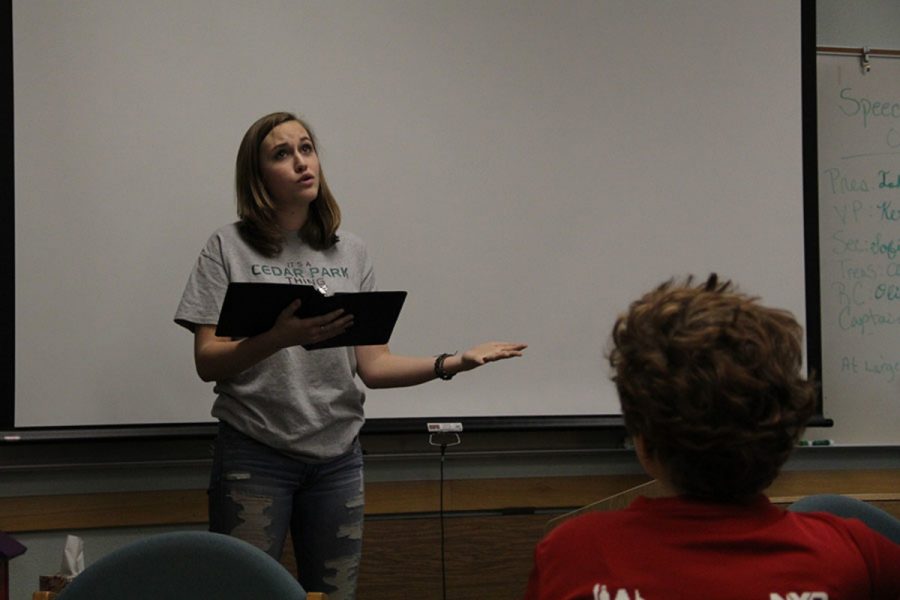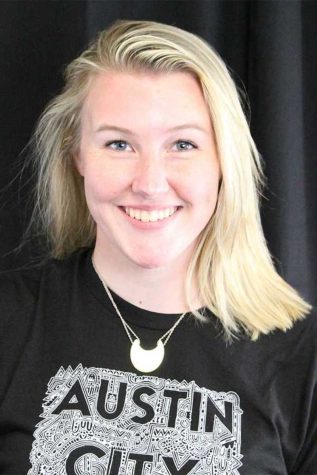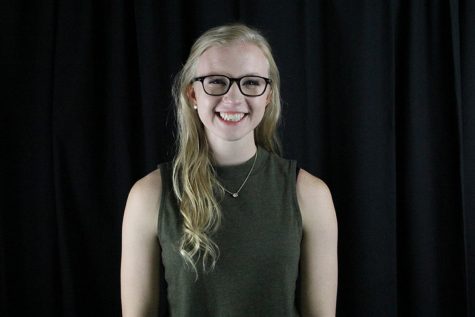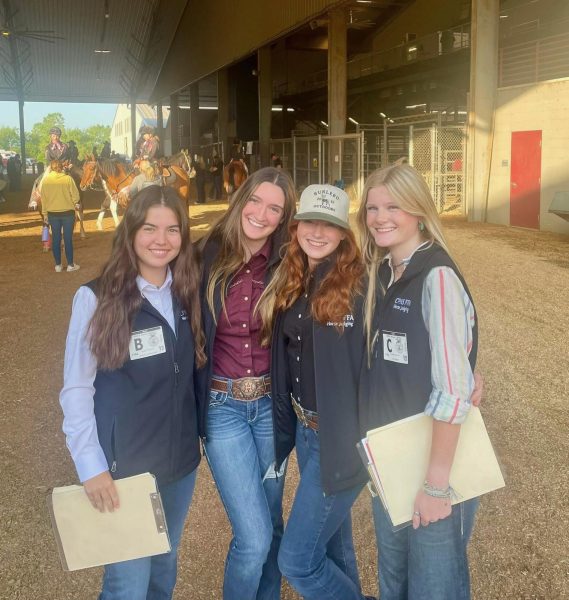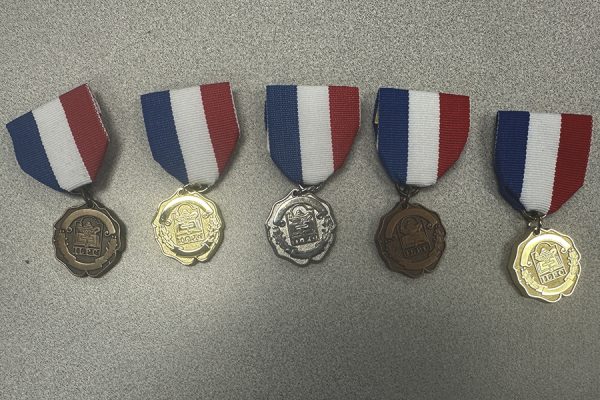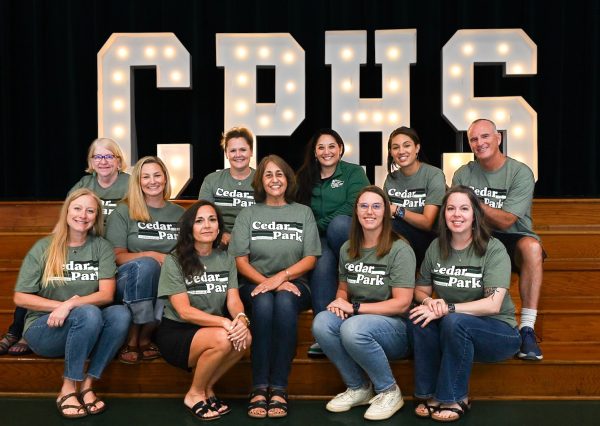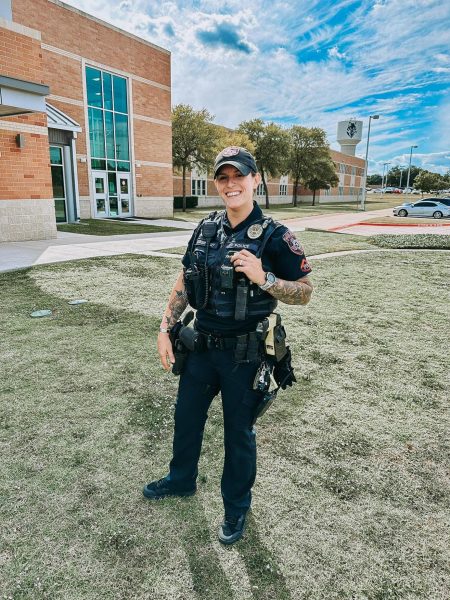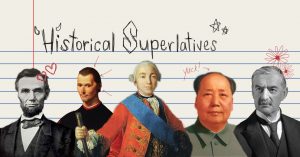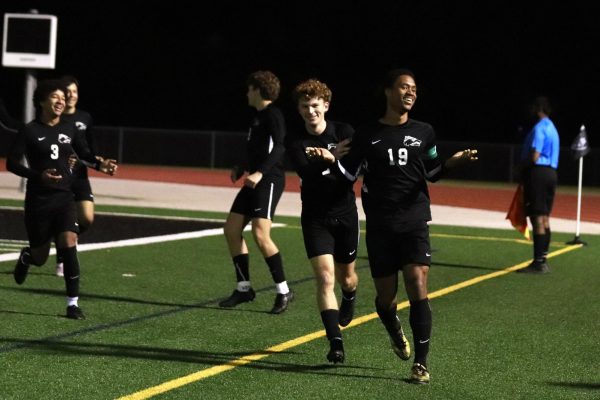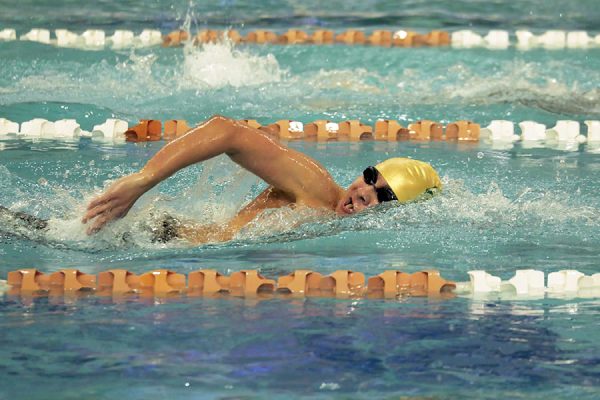Academic UIL competitors advance to regionals
Sophomore Sydney Herrick practices her UIL prose pieces for the oral interpretation class. Although Herrick did not advance this year, she is readily preparing pieces for next year’s competition season.
April 26, 2016
Competition. Not an unfamiliar term to the vast majority of the student body here at CP. Currently holding the State championship title in both football and marching band, our school’s sports and band programs are notorious for posing as intimidating competition when it comes to district play and beyond. However, in a world beyond sports, there are competitions that allow students to demonstrate their academic strong suits. Freshman Joshua Kolenbrander is a member of our school’s academic UIL team, competing in mathematics and number sense.
“I compete in academic UIL because it offers me an opportunity to display my abilities outside of a classroom setting,” Kolenbrander said.
This is Kolenbrander’s first year as a part of the academic team and is one of three competitors from our district advancing to regional competition in number sense and mathematics. Preparing for these events requires working through tests from competitions past in both timed and untimed settings as well as researching tested subject matters that may have not been reached in school classes yet. On a typical competition day, number sense and calculator applications are the first events of the day and take place back-to-back. Kolenbrander utilizes his time in between these first two events and the mathematics event to review questions that he generally misses.
“I felt confident about my chances,” Kolenbrander said. “There also existed a legitimate possibility of advancing as a team, so I made sure to review topics the team might have forgotten since their previous classes. We felt that we had prepared the best of our abilities. I do wish that our school advanced as a team in at least one of the Number Sense and Mathematics competitions, and we came very close, so I feel there is potential in future years for improvement.”
Po-chih Chen is another member of the UIL academic team who competes in science. Plenty of study, especially the night before and the day of, constitute preparations for this event. The competitors are tested in several areas of science, including biology, chemistry and physics.
“[Receiving the news that he as well as the science team had advanced was] really, really exciting,” Chen said. “It was my first year, and we kept checking other districts’ scores the days after the competition and figured out we advanced as a wildcard team before they officially announced it.”
Speech and debate are another entity of UIL Academics in which our team competed in at the recent district meet in Georgetown. Specific events range from oral interpretation to Lincoln Douglas debate. Senior Claire Cantrell began competing in oral interpretation after joining the class her sophomore year and subsequently found a knack for competing in current issues her junior year. For oral interpretation, prior to the event there is documentation checks, followed by the preliminary round. Prelims consists of rooms of six; the top two from a room advance to finals.
“Everyone is dressed in suits, and it’s quite funny to see the reactions from kids that attend the school that is hosting us since, for them, it’s just a regular school day,” Cantrell said. “I love the atmosphere and get along well with all the other kids that compete from Cedar Park and other schools in our district. I have friends that go to other schools that I’ve met just from spending so much time with them at meets.”
Leading up to competition day, Cantrell had mixed feelings.
“I’ve been working hard on my pieces all year, so I was fairly confident but still nervous,” Cantrell said. “Our prelim rounds only have one judge, so if that judge didn’t like my piece, there was no way I could advance.”
However, Cantrell’s worries were subdued when she received the news that she was in the top three advancing competitors from our district in prose interpretation. In preparation for the coming regional meet, Cantrell plans to dedicate herself to continuous practice.
“I decided that I need to change up the attitude with which I read one of my pieces, which is a big change since my readings have become so habitual,” Cantrell said. “My interp class is also helping the regional competitors by critiquing our pieces for us. This is my third year competing, and the past two years I’ve only gone to regionals as an alternate. I was and still am thrilled to actually get to compete this time.”

![Posing with their UIL State Trophy, the Robolobos Van Halen Team beams with excitement after their win. “It was a team effort,” junior Noah Vo said. “I was happy because something happened in the first match and the match was also really close. So [when] they finally revealed it, I was pretty happy.” Photo courtesy of Amy Lovelace](https://cphswolfpack.com/wp-content/uploads/2025/05/IMG_0910-EDIT-1200x723.jpg)
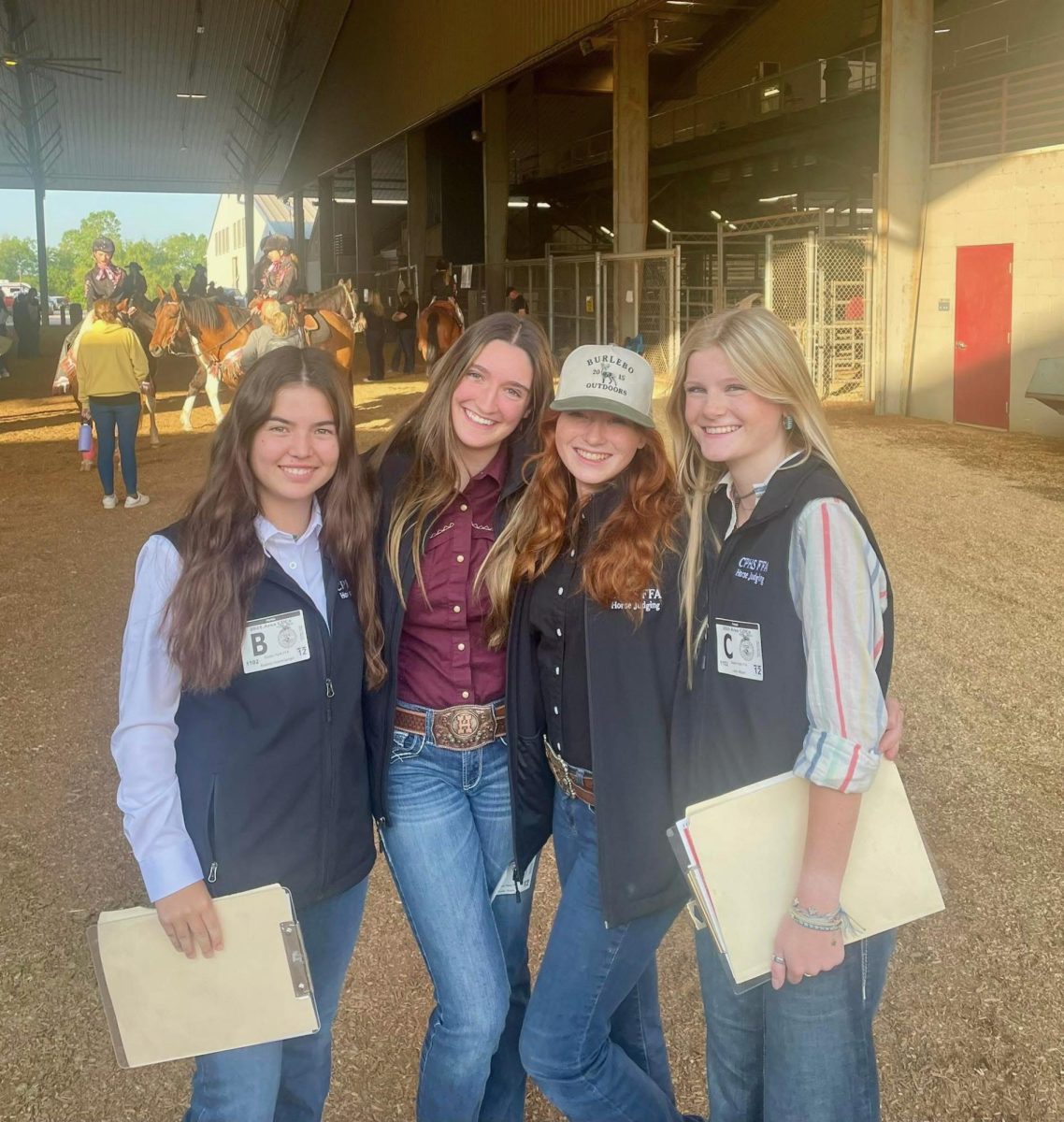
![Broadcast, yearbook and newspaper combined for 66 Interscholastic League Press Conference awards this year. Yearbook won 43, newspaper won 14 and broadcast took home nine. “I think [the ILPC awards] are a great way to give the kids some acknowledgement for all of their hard work,” newspaper and yearbook adviser Paige Hert said. “They typically spend the year covering everyone else’s big moments, so it’s really cool for them to be celebrated so many times and in so many different ways.”](https://cphswolfpack.com/wp-content/uploads/2025/05/edited-ILPC.jpg)











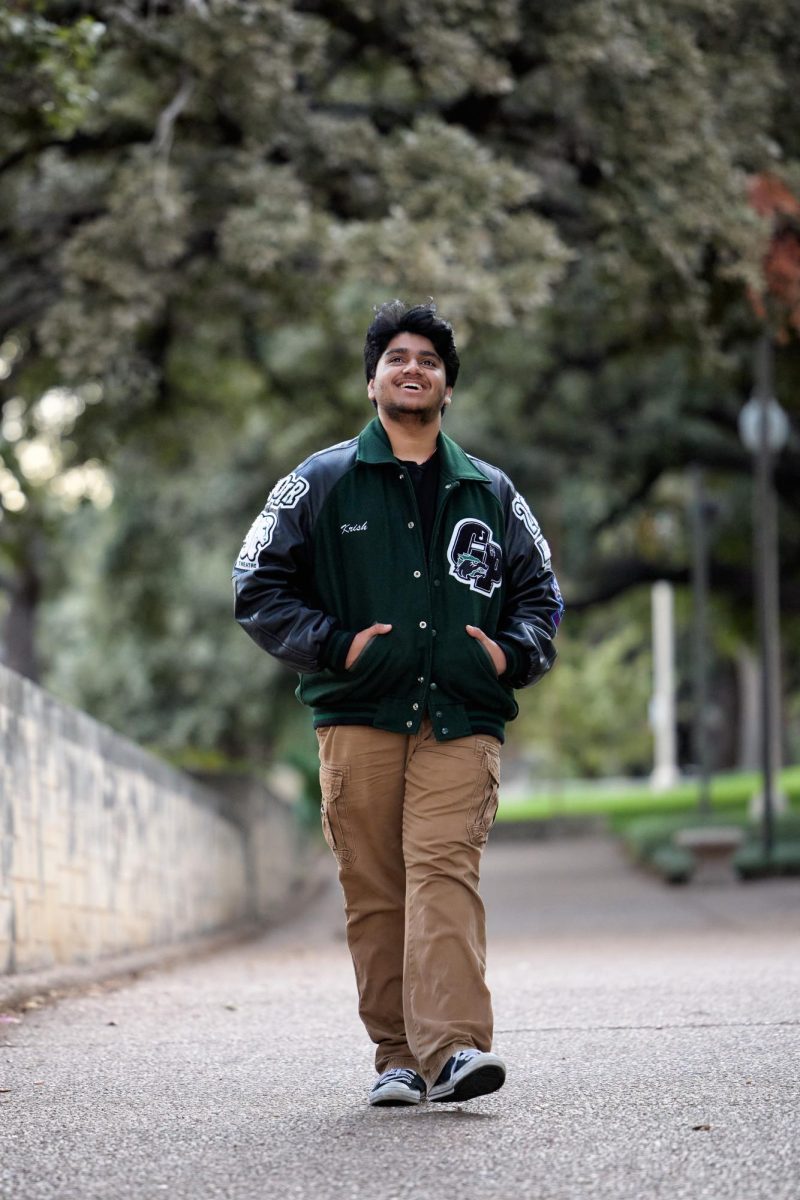

![Bringing her arm over her head and taking a quick breath, junior Lauren Lucas swims the final laps of the 500 freestyle at the regionals swimming competition on date. Lucas broke the school’s 18-year-old record for the 500 freestyle at regionals and again at state with a time of 4:58.63. “I’d had my eye on that 500 record since my freshman year, so I was really excited to see if I could get it at regionals or districts,” Lucas said. “ State is always a really fun experience and medaling for the first time was really great. It was a very very tight race, [so] I was a bit surprised [that I medaled]. [There were] a lot of fast girls at the meet in general, [and] it was like a dogfight back and forth, back and forth.” Photo by Kaydence Wilkinson](https://cphswolfpack.com/wp-content/uploads/2025/03/Kaydence-2.7-23-edit-2.jpg)
![As the support team sits and poses for a photo in the cafeteria with the counseling team they eagerly wait to start their day. "We [all] seem to be a team, I get up every day and there's days where I don't want to go to work today, but I'm thankful that I have a job and I'm blessed to have what I have," Christopherson said. Photo Courtesy of Julie Weltens.](https://cphswolfpack.com/wp-content/uploads/2025/01/AF9E8470-10D7-4C91-BF28-EC8F86BAB66C-1200x852.jpeg)
![Officer Stephanie Cash is in her second year as an SRO at CPHS. “Seeing [students] grow over the years has been kind of cool,” Officer Cash said. “Freshmen that [are] all over the place and then in the next couple of years get a little more squared away and go to class and do work and start thinking about the future. Being a part of a student's growth is the best way to measure my success as an SRO.” Photo Courtesy of Cedar Park Police Department's PIO, Alicia Gallagher.](https://cphswolfpack.com/wp-content/uploads/2024/12/CPHS-SRO-900x1200.jpg)


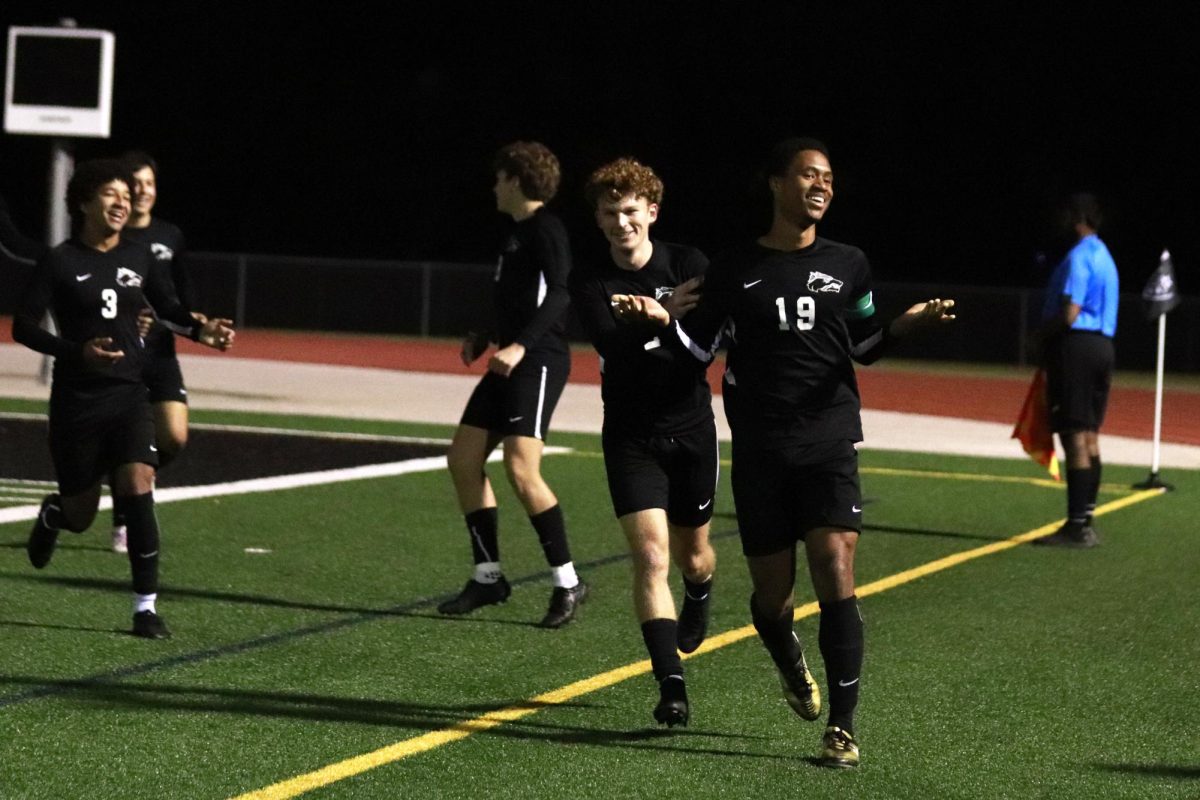
![Taking a breath as he raises his arm up and out of the water, sophomore Kaden Padilla swims the 500 freestyle at the UIL state meet on Feb. 21-22. Padilla placed 10th overall and second in the consolation final in the event, dropping two seconds. “My family was there, so being able to drop time for them was really special,” Padilla said. “It was awesome [finding out I advanced to the consolation finals]. I wasn’t expecting it, and I was very surprised. My parents being there definitely made me a lot happier knowing they got to see me swim in finals.” Photo by Skyler King.](https://cphswolfpack.com/wp-content/uploads/2025/03/kaden-padilla.jpg)

![Three defenders try to stop senior point guard Hope Edwards before the ball leaves her hands. The girls basketball team faced Liberty Hill on Feb 21, losing 58-40. “[My season was] definitely bittersweet,” Edwards said. It's definitely sad [because] I'm gonna miss all my teammates, my coaches and just the whole CP environment.”](https://cphswolfpack.com/wp-content/uploads/2025/03/julia-128-1200x800.jpg)













